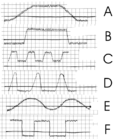Remittent fever
Remittent Fever
Remittent fever is a type of fever characterized by fluctuations in temperature above normal during a 24-hour period, but which never returns to normal. This condition is distinguished from other forms of fever, such as intermittent fever, where the temperature returns to normal at least once every 24 hours. Remittent fever is often associated with infectious diseases, such as malaria, typhoid fever, and yellow fever, which are prevalent in tropical and subtropical regions.
Causes and Pathophysiology
The primary cause of remittent fever is infection by various pathogens, including bacteria, viruses, and parasites. In the case of malaria, the fever is caused by parasites of the genus Plasmodium, which are transmitted by the bite of infected Anopheles mosquitoes. Typhoid fever is caused by the bacterium Salmonella typhi, and yellow fever is caused by the yellow fever virus, which is also transmitted by mosquitoes.
The pathophysiology of remittent fever involves the body's immune response to the invading pathogen. Pyrogens, substances that induce fever, are released either directly by the pathogens or by the body's immune cells in response to the infection. These pyrogens act on the hypothalamus, the part of the brain that regulates body temperature, causing the set point of body temperature to increase.
Symptoms
The hallmark of remittent fever is a fever that fluctuates more than 1°C over 24 hours but does not return to normal. Other symptoms may include chills, sweating, headache, muscle aches, and general malaise. The specific symptoms can vary depending on the underlying cause of the fever. For example, malaria may also cause nausea, vomiting, and jaundice, while typhoid fever can lead to a rash and abdominal pain.
Diagnosis
Diagnosis of remittent fever involves a thorough medical history and physical examination, as well as laboratory tests to identify the underlying cause. Blood tests can detect the presence of the pathogen, whether it be bacteria, virus, or parasite. In the case of malaria, a blood smear can be examined under a microscope to identify the presence of Plasmodium parasites. Other diagnostic tests may include cultures of blood or other bodily fluids, serological tests, and molecular tests for pathogen DNA or RNA.
Treatment
Treatment of remittent fever depends on the underlying cause. Antimalarial drugs, such as chloroquine or artemisinin-based combination therapies (ACTs), are used to treat malaria. Antibiotics are prescribed for bacterial infections like typhoid fever. Supportive care, including hydration and fever management, is also important in the treatment of remittent fever.
Prevention
Prevention of remittent fever involves controlling or avoiding exposure to the pathogens that cause it. This can include the use of insect repellent, bed nets, and clothing to prevent mosquito bites in areas where malaria and yellow fever are endemic. Vaccinations are available for some causes of remittent fever, such as yellow fever and typhoid fever.
Transform your life with W8MD's budget GLP-1 injections from $125.
W8MD offers a medical weight loss program to lose weight in Philadelphia. Our physician-supervised medical weight loss provides:
- Most insurances accepted or discounted self-pay rates. We will obtain insurance prior authorizations if needed.
- Generic GLP1 weight loss injections from $125 for the starting dose.
- Also offer prescription weight loss medications including Phentermine, Qsymia, Diethylpropion, Contrave etc.
NYC weight loss doctor appointments
Start your NYC weight loss journey today at our NYC medical weight loss and Philadelphia medical weight loss clinics.
- Call 718-946-5500 to lose weight in NYC or for medical weight loss in Philadelphia 215-676-2334.
- Tags:NYC medical weight loss, Philadelphia lose weight Zepbound NYC, Budget GLP1 weight loss injections, Wegovy Philadelphia, Wegovy NYC, Philadelphia medical weight loss, Brookly weight loss and Wegovy NYC
|
WikiMD's Wellness Encyclopedia |
| Let Food Be Thy Medicine Medicine Thy Food - Hippocrates |
Medical Disclaimer: WikiMD is not a substitute for professional medical advice. The information on WikiMD is provided as an information resource only, may be incorrect, outdated or misleading, and is not to be used or relied on for any diagnostic or treatment purposes. Please consult your health care provider before making any healthcare decisions or for guidance about a specific medical condition. WikiMD expressly disclaims responsibility, and shall have no liability, for any damages, loss, injury, or liability whatsoever suffered as a result of your reliance on the information contained in this site. By visiting this site you agree to the foregoing terms and conditions, which may from time to time be changed or supplemented by WikiMD. If you do not agree to the foregoing terms and conditions, you should not enter or use this site. See full disclaimer.
Credits:Most images are courtesy of Wikimedia commons, and templates, categories Wikipedia, licensed under CC BY SA or similar.
Contributors: Prab R. Tumpati, MD

